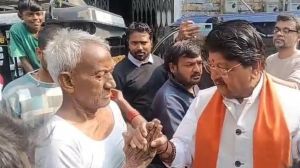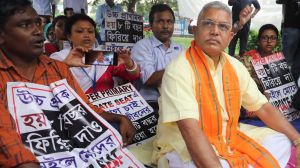Ripe for review
The major handicap in arriving at a balanced understanding of national intelligence operations and assessment is that only the failures get ...

The major handicap in arriving at a balanced understanding of national intelligence operations and assessment is that only the failures get to be noticed, and successes remain closeted in secret vaults for good reasons. We have been witness to extensive disclosures of how the United States and Britain, in spite of their extensive experience in the field of intelligence, committed gross errors in connection with 9/11, the Iraq war and the post-war management of Iraq. The Kargil war five years ago was a major failure of intelligence in our own context, as much as the 1962 war was four decades ago. This is why mature democracies undertake frequent reviews of their intelligence system to rectify any weaknesses that may have appeared.
The recommendations of the Group of Ministers were kept secret for security reasons. But there is no reason to keep most of the basic issues under the secrecy cloak. A substantive degree of transparency about the principles, structures and policy guidelines and some public knowledge are required if the ills normally arising out of closed self-sustaining systems and organisations are to be avoided. A review of our intelligence apparatus, therefore, is certainly needed. This is not just because an officer from the premier intelligence agency disappeared, but because we need to put our national security management on sound footing. It is time we looked at the steps taken since the Group of Ministers approved changes in the system three years ago.
There are many aspects that would require a re-look, especially in terms of principles, structures and procedures. For example, the Kargil war, according to the Kargil Review Committee, 8220;highlighted the gross inadequacies in the national surveillance capability8221;, especially in the context of intelligence of military significance. It had pointed out the practice in advanced countries of technological intelligence being undertaken by an integrated defence intelligence agency and suggested the setting up of a similar system. Even more important, we need to give serious thought to the idea of an appropriate body at the national level, not only to coordinate the work of the agencies, but essentially for intelligence assessments which, by themselves, must be insulated from policy-making.
- 01
- 02
- 03
- 04
- 05































